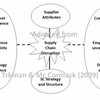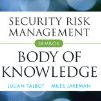 Oh dear…another earthquake in Christchurch, New Zealand, less than 6 months after the previous disaster, and this time perhaps even more devastating. One thing for sure, this community is having its disaster plans, business continuity measures and its resilience (and resolve) tested to the full. I can only imagine what I must be like, seeing the previous recovery efforts shattered to pieces in a matter of seconds. Six months ago I wrote about the previous earthquake to hit Christchurch, now it is time for it again. While there isn’t much I can do personally from here, what I can do is dig up some of my older posts that deal with business continuity, emergency supply chains, disaster recovery and last, but not least, resilience.
Oh dear…another earthquake in Christchurch, New Zealand, less than 6 months after the previous disaster, and this time perhaps even more devastating. One thing for sure, this community is having its disaster plans, business continuity measures and its resilience (and resolve) tested to the full. I can only imagine what I must be like, seeing the previous recovery efforts shattered to pieces in a matter of seconds. Six months ago I wrote about the previous earthquake to hit Christchurch, now it is time for it again. While there isn’t much I can do personally from here, what I can do is dig up some of my older posts that deal with business continuity, emergency supply chains, disaster recovery and last, but not least, resilience.
Resilience
One of my earliest posts on economic resilience is the framework developed by Adam Rose, which defines economic resilience as the inherent and adaptive responses to hazards that enable individuals and communities to avoid some potential losses. Adam Rose has also contributed to a recent paper on transportation resilience. But perhaps resilience is not something inherently present, but rather something that is acquired through organizational learning, as Kathleen Sutcliffe and Timothy Vogus propose?
Transportation
The speedy recovery of the transportation network is imperative to the recovery of the communities struck by any disaster, as it facilitates the supply of resources needed to cope with the event. This also brings to mind an earlier post I had on the New Zealand Lifelines Engineering Project that showed how lifeline engineering is directly related to the resilience of road networks to natural hazards and how it can be integrated into road controlling authority management practices.
Human Relief
Emergency logistics, along with humanitarian logistics are key ingredients in dealing with the aftermath of the Christchurch earthquake, as the 2006 Yogyakarta earthquake showed. On a side note, Ronaldo Tomasini and Luk van Wassenhove recently wrote a book on Humanitarian Logistics that is well worth reading.
Disasters and supply chains
Disasters. The result: Damaged infrastructure. End result: Disrupted supply chains. But how do disasters really impact supply chains? In my post on on a paper researching the impact of disasters on firms in different sectors it is shown that the kind of disaster and the place a company has in the supply chain matters considerably. I’m not sure about New Zealand’s exports and whether the earthquake will have an impact on commodity prices like the Queensland flooding had on sugar prices, but it will be interesting to follow. Here is a newspaper article on some of the economic fallouts from the previous earthquake.
Community resilience
Another matter for Christchurch now will be its community resilience. In this post it is said that in order to achieve community resilience public and private owners of critical infrastructures and key resources must work together, before, during and after a disaster. That said, the good news is that New Zealand has a research project called Resilient Organisations, which aims at assisting New Zealand organisations to recover economic competitiveness after hazard events by improving their resilience. Interestingly, after the previous earthquake, Christchurch put up a special website to assist businesses and people in how to recover: recovercanterbury.co.nz.
What now?
As I said, there’s not much I can personally from here, but having lived in Christchurch myself it is heart-wrenching to see the pictures in the news. I can only hope that Christchurch once again will rise from the rubble and show the world what resilience really means.
News links
- nzherald.co.nz: Christchurch earthquake
- vg.no: Jordskjelv på New Zealand
Related posts
- husdal.com: The Christchurch earthquake (September 2010)












